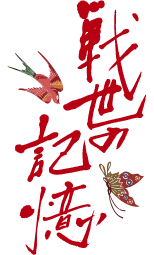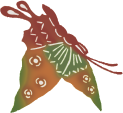
“A boy who lost his mother and father”
“A boy who lost his mother and father”
Zenko Uchima, 80 years old
(Place of birth: Yoza, Takamine Village, Okinawa Prefecture)
Ever since the Japanese Army came to Okinawa, we had no classes. Our school buildings were occupied by Japanese soldiers and we were sent to various places for service work. The adult men on the island were forced to dig shelters and build airports. Some had been drafted and taken to mainland Japan.
When we saw the Americans landing on Kerama from Takamine Elementary School, we were thrown into an uproar.
(While the footsteps of the war were approaching)
When I heard the gong in Takara Village, I did not know what it was for at first. A few minutes later, I realized that it was an air-raid alarm and evacuated into a shelter. Since I was a little child, I did not feel scared. After hiding in the shelter for a while, we were told, “As there are a lot of children in your family, you’d better get out of here and now is the time that you can get out of the shelter and escape,” and we left the shelter. We had a very bad environment in the shelter. There were a lot of lice and we were practically exposed to the rain.
After leaving the shelter, we walked around here and there. We headed for Ozato first, then went to Maezato via Kuniyoshi and eventually decided to turn around and head back as there weren’t any other places to escape to.
While we were running away, we often hid in other people’s houses left undestroyed even after artillery gunfire. Although I am not sure if it was naval gunfire or trench mortar gunfire, we were attacked with two cannon shells fired at one time repeatedly when we were in Kuniyoshi, I was so scared. There was a Japanese soldier hiding with us, but he was wounded in the leg and died.
Then, we headed for Ozato and we saw many people killed under the two-shell attack.
To us, the Japanese soldiers then were quite scary. They always carried swords and the way they spoke was militaristic and intimidating. Whenever they opened their mouths, they spoke about winning the war. At Yoza where we lived, there was a headquarters of the Yama corps led by Lieutenant General Amamiya. He was extremely scary. Food was relatively plentiful in Yoza and the Japanese Army there often requisitioned food from the civilians in the village for their troops such as potatoes and soybeans.
We escaped all the way to Maezato, then returned to Kuniyoshi and eventually to Ozato. There were many soldiers on each side of the road. We saw two American tanks, I thought, were destroyed in front of the national elementary school in Takamine.
I was captured and became a prisoner of war near the place where the original community center was.
(What happened to your family?)
I got separated from my family there. When I was captured, I called out to my mother, but she did not seem to hear me. It seems like she was killed after I was captured.
After becoming a prisoner, I saw an American corps in Oujima. I remember that the soldiers were black, but I was not scared. Japanese soldiers were scary and American soldiers were kind.
I was taken to Kochinda as a prisoner. I remember quite well that an American soldier gave me a cupcake and I shared the cake with others there.
(Situation of the people around me)
I saw a woman who was crying and throwing away her money from a bridge. I thought that she might have gone out of her mind due to the death of her family members.
It smelled so bad when the bombs burned the compost made of piled up straw, sugarcane leaves and livestock feces. In addition, I smelled decaying human bodies and sulfur of the artillery shells. When they were mixed, it smelled terrible, I remember. I still hate the smell of sulfur and the sound of crying children because they remind me of the war.
(After becoming a prisoner)
I was taken to Sedake in the north of main island Okinawa by a landing vessel. I saw people who evacuated to Yanbaru gathered there and a person who was with a woman who, I believe, was related to them. They came for her. Meanwhile, there was a woman who broke down crying and kept sitting in the road due to the grief of losing her parents.
(About my family)
My father passed away in Yonabara due to tetanus he got when his leg was injured. My younger sister and I are the only survivors. Everyone else was killed. I was told that my mother was killed while carrying my younger brother on her back.
After being left alone, I left Kochinda and went to Hyakuna. I asked someone in Hyakuna, “I lost my parents. What should I do?” He replied, “Well, you should go here,” and introduced me to an orphanage. This is how I found my way to the orphanage in Hyakuna. There were many mothers at the orphanage and they were all kind. It seemed that they were taking care of the orphans in a hope to see their children again at the orphanage. Some of the children there were crying all through the night. After a while, my aunt on my mother’s side came over to the orphanage and picked me up.
(Looking back at the war)
Is it peaceful now? No, I do not think so. I have never thought about what should be done to create a peaceful world, but I seriously want those people who started the war to know that they are truly evil. We could have lived happy lives if there was no war.
Zenko Uchima, 80 years old
(Place of birth: Yoza, Takamine Village, Okinawa Prefecture)
Ever since the Japanese Army came to Okinawa, we had no classes. Our school buildings were occupied by Japanese soldiers and we were sent to various places for service work. The adult men on the island were forced to dig shelters and build airports. Some had been drafted and taken to mainland Japan.
When we saw the Americans landing on Kerama from Takamine Elementary School, we were thrown into an uproar.
(While the footsteps of the war were approaching)
When I heard the gong in Takara Village, I did not know what it was for at first. A few minutes later, I realized that it was an air-raid alarm and evacuated into a shelter. Since I was a little child, I did not feel scared. After hiding in the shelter for a while, we were told, “As there are a lot of children in your family, you’d better get out of here and now is the time that you can get out of the shelter and escape,” and we left the shelter. We had a very bad environment in the shelter. There were a lot of lice and we were practically exposed to the rain.
After leaving the shelter, we walked around here and there. We headed for Ozato first, then went to Maezato via Kuniyoshi and eventually decided to turn around and head back as there weren’t any other places to escape to.
While we were running away, we often hid in other people’s houses left undestroyed even after artillery gunfire. Although I am not sure if it was naval gunfire or trench mortar gunfire, we were attacked with two cannon shells fired at one time repeatedly when we were in Kuniyoshi, I was so scared. There was a Japanese soldier hiding with us, but he was wounded in the leg and died.
Then, we headed for Ozato and we saw many people killed under the two-shell attack.
To us, the Japanese soldiers then were quite scary. They always carried swords and the way they spoke was militaristic and intimidating. Whenever they opened their mouths, they spoke about winning the war. At Yoza where we lived, there was a headquarters of the Yama corps led by Lieutenant General Amamiya. He was extremely scary. Food was relatively plentiful in Yoza and the Japanese Army there often requisitioned food from the civilians in the village for their troops such as potatoes and soybeans.
We escaped all the way to Maezato, then returned to Kuniyoshi and eventually to Ozato. There were many soldiers on each side of the road. We saw two American tanks, I thought, were destroyed in front of the national elementary school in Takamine.
I was captured and became a prisoner of war near the place where the original community center was.
(What happened to your family?)
I got separated from my family there. When I was captured, I called out to my mother, but she did not seem to hear me. It seems like she was killed after I was captured.
After becoming a prisoner, I saw an American corps in Oujima. I remember that the soldiers were black, but I was not scared. Japanese soldiers were scary and American soldiers were kind.
I was taken to Kochinda as a prisoner. I remember quite well that an American soldier gave me a cupcake and I shared the cake with others there.
(Situation of the people around me)
I saw a woman who was crying and throwing away her money from a bridge. I thought that she might have gone out of her mind due to the death of her family members.
It smelled so bad when the bombs burned the compost made of piled up straw, sugarcane leaves and livestock feces. In addition, I smelled decaying human bodies and sulfur of the artillery shells. When they were mixed, it smelled terrible, I remember. I still hate the smell of sulfur and the sound of crying children because they remind me of the war.
(After becoming a prisoner)
I was taken to Sedake in the north of main island Okinawa by a landing vessel. I saw people who evacuated to Yanbaru gathered there and a person who was with a woman who, I believe, was related to them. They came for her. Meanwhile, there was a woman who broke down crying and kept sitting in the road due to the grief of losing her parents.
(About my family)
My father passed away in Yonabara due to tetanus he got when his leg was injured. My younger sister and I are the only survivors. Everyone else was killed. I was told that my mother was killed while carrying my younger brother on her back.
After being left alone, I left Kochinda and went to Hyakuna. I asked someone in Hyakuna, “I lost my parents. What should I do?” He replied, “Well, you should go here,” and introduced me to an orphanage. This is how I found my way to the orphanage in Hyakuna. There were many mothers at the orphanage and they were all kind. It seemed that they were taking care of the orphans in a hope to see their children again at the orphanage. Some of the children there were crying all through the night. After a while, my aunt on my mother’s side came over to the orphanage and picked me up.
(Looking back at the war)
Is it peaceful now? No, I do not think so. I have never thought about what should be done to create a peaceful world, but I seriously want those people who started the war to know that they are truly evil. We could have lived happy lives if there was no war.


